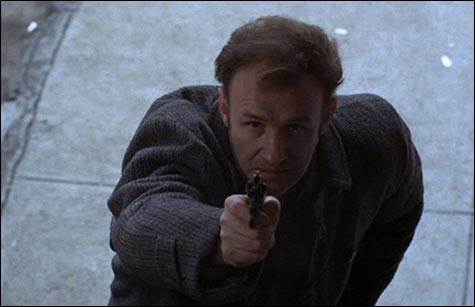William Friedkin, the New Hollywood’s most daring pulp-realist provocateur.
By MICHAEL ATKINSON | February 11, 2009

THE FRENCH CONNECTION: Even today, its urban tangle can make you grind your teeth and revisit long-submerged childhood fears. |
However we may still praise, and therefore bury, the American New Wave — and be compelled to do so because of the dire state of American film in the present — we do still run the genuine risk of slipping down the wormhole slicked by present-moment techno obsessions and amnesiac entertainment-media narcissism. Who has time to remember Klute or Chinatown these days, when our iPhones are throbbing in our pockets with the heat of outtakes of trailers for Vin Diesel films still in production? Perhaps part of the problem with that zeitgeist’s posterity was its particular era and the way so few of its best filmmakers persisted into the post-’70s decades. Scorsese’s longevity may be singular — Coppola’s post-Apocalypse Now record is dreadful, Lucas evolved into a kiddie-park mogul and Spielberg into a circus ringleader, Terrence Malick took 20 years off, Sam Peckinpah and Hal Ashby and Alan J. Pakula died too early, Bob Rafelson and Michael Ritchie and Monte Hellman more or less disappeared. Robert Altman crashed and burned for ages until his ’90s comeback; Sidney Lumet never had a worthwhile comeback at all. And so on.
The definitive case study might be William Friedkin, who with THE FRENCH CONNECTION (1971) and THE EXORCIST (1973) became the New Hollywood’s most daring pulp-realist provocateur. A gargantuan helping of kudos and ticket sales gave him the collateral to realize a pet project, remaking the French classic The Wages of Fear as SORCERER (1977), and that brought him, with a thundering ka-thunk, the desolation of popular and critical disinterest. His fall from grace became a permanent doom with CRUISING (1980), an outrageously tasteless rough-trade gay thriller that has, of course, acquired the patina of a campy cult treat decades hence. Friedkin’s career saw no such overhaul; today only The Exorcist, the scalding confrontationalism of which still stings the eyes and quakes the stomach, is discussed and Netflixed with any regularity.
The Harvard Film Archive retrospective is picky, as well it should be, eliding boners like Deal of the Century (1983), Rampage (1987), The Guardian (1990), and Jade (1995), all of them workmanlike and dull and conceptually lame enough to keep Friedkin starving for worthy projects. The truth of him as a filmmaker is that he pioneered in Hollywood and then quickly became lost in its compromises and bullshit. Would that a talented director were allowed to prosper on his own terms, at the rate of his own evolution, without the poisoning influence of money men and market research and studio politics. When Friedkin called the shots on his films, they percolated with visual danger and muscular movement; even today, the urban tangle of The French Connection and the possessed Georgetown of The Exorcist and the malevolent rain forest of Sorcerer can make you grind your teeth and revisit long-submerged childhood fears.
 Topics
Topics:
Features
, Entertainment, Music, The French Connection, More  , Entertainment, Music, The French Connection, The Exorcist, Sorcerer, Henri-Georges Clouzot, Monte Hellman, Pop and Rock Music, Hollywood, Movies, Less
, Entertainment, Music, The French Connection, The Exorcist, Sorcerer, Henri-Georges Clouzot, Monte Hellman, Pop and Rock Music, Hollywood, Movies, Less 